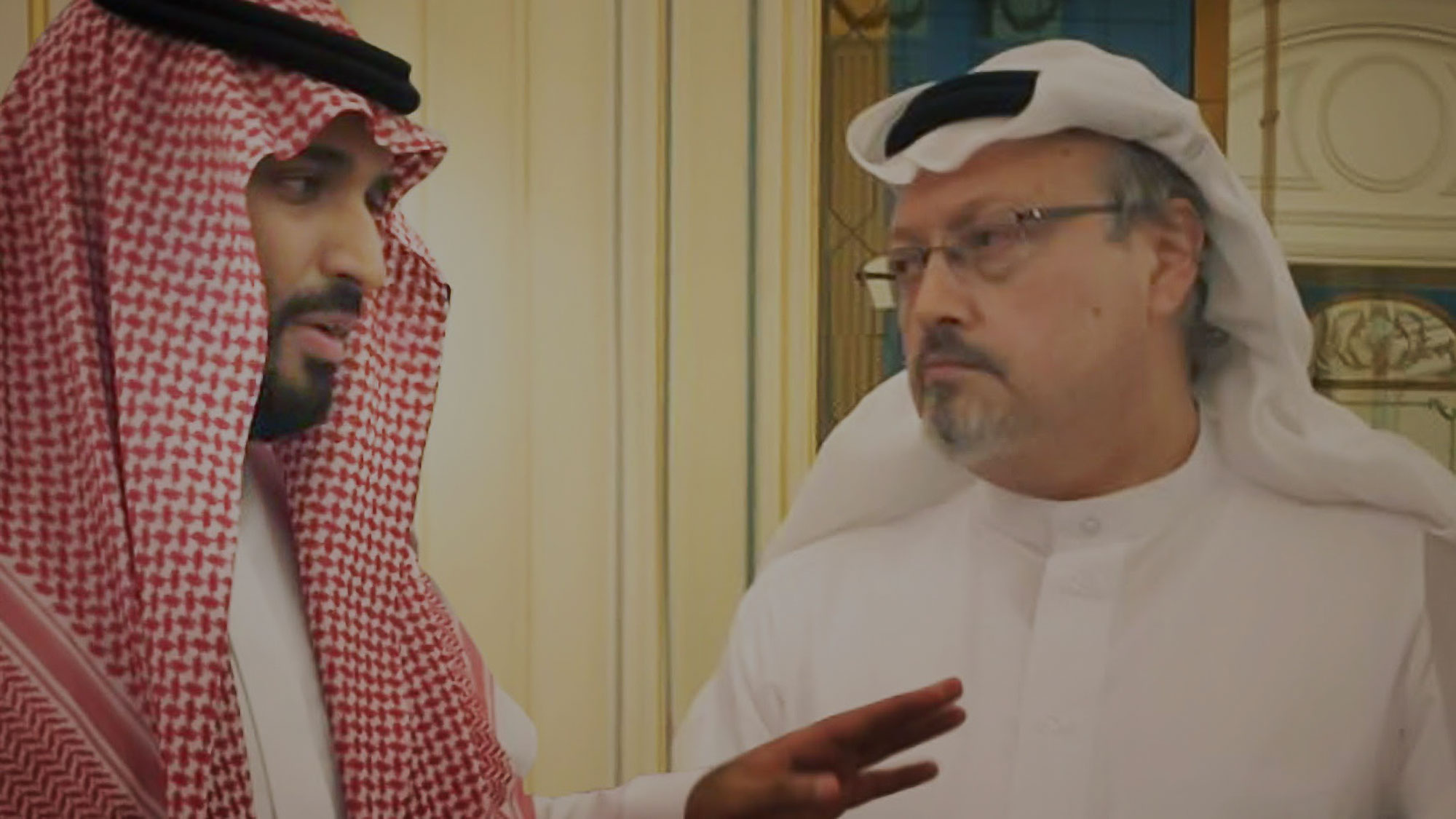
In a world that reveals new horrors nearly every day, the last event most of us want to revisit is the 2018 assassination of Saudi Arabian journalist Jamal Khashoggi. But in an era when journalism has become dangerously undervalued—and is often dangerous by itself—Bryan Fogel’s documentary The Dissident feels essential. This is a somber piece of work; it’s not likely to cheer anyone up. But if the details of the Khashoggi case aren’t for the faint of heart, facing the facts squarely is at least somewhat cleansing. And as the story of a man who put his life on the line for his ideals, it’s as bracing a narrative as any novelist could invent.
Central to Khashoggi’s fate, as Fogel frames it, is the story of a young Saudi dissident, video blogger and activist named Omar Abdulaziz, living in exile in Montreal. Fogel’s movie opens with an introduction to Abdulaziz, who admits that he feels responsible for what happened to Khashoggi. It’s not clear until near the movie’s end exactly why that is, an approach that gives Fogel’s film its sense of urgency and momentum.
Khashoggi began his career as a journalist in the mid-1980s and would become something of an insider, with friendly ties to the Saudi monarchy. But as he grew more critical of the country’s government—particularly with the ascent of Crown Prince Mohammed Bin Salman, an alleged progressive whose actions have shown him to be anything but—Khashoggi sought freedom of speech elsewhere. He relocated to the United States in 2017, and began writing for the Washington Post that same year. On October 2, 2018, he entered the Saudi Arabian consulate in Istanbul, to obtain a document necessary for his upcoming wedding to Hatice Cengiz, a 36-year-old scholar. Hatice waited outside, but Khashoggi never exited the building. It would later be revealed that he was killed inside, his body dismembered and disposed of. The Turkish government launched an investigation; audio recordings of the killing strongly suggested that it was carried out on orders of the Saudi Royal Family. Saudi Arabia has blamed the killing on rogue agents acting on their own authority.
Fogel carefully traces the details leading up to the grisly murder, and spends even more care outlining what happened afterward, interweaving the story of Abdulaziz’s affiliation with Khashoggi. And he doesn’t shy away from the harrowing particulars: a transcript of the recordings indicates that one of Khashoggi’s killers, wanting to know if their target had entered the consulate, asked one of his accomplices, “Has the sacrificial animal arrived?” The details of this killing, and the Saudi government’s denial of any involvement, are even more enraging when viewed in light of the Trump administration’s refusal to acknowledge that any crime had occurred.
And yet, the most valuable element of The Dissident is what it tells us about Khashoggi the man, outlining how lonely he had become in the United States, and how happy he was that he’d found new love. (He and his first wife were forced to divorce, and he was unable to see his family in Saudi Arabia.) Shortly before his death, Khashoggi purchased a home for himself and Hatice. One of the first pieces of furniture he bought for the new place was a La-Z-Boy recliner. Fogel includes footage of Khashoggi sinking into this big, puffy chair, his face radiant with contentment he feels he has finally earned, just within reach. It’s a wrenching detail, though Fogel goes on to milk it a little too freely—a later shot of the chair, sitting forlorn and empty, probably should have been cut. Still, when Hatice returns to the apartment after her fiancé’s murder, she settles into the chair herself, as if, with her own body, she were trying to memorize the imprint of the man she loved. In The Dissident, Khashoggi’s story unfolds like a political thriller. But it’s a tragic love story, too, one in which an optimistic bride-to-be is plunged into a nightmare. No wonder, as she sits in that chair, she looks as if she wishes she could stay in it forever.
More Must-Reads from TIME
- Donald Trump Is TIME's 2024 Person of the Year
- Why We Chose Trump as Person of the Year
- Is Intermittent Fasting Good or Bad for You?
- The 100 Must-Read Books of 2024
- The 20 Best Christmas TV Episodes
- Column: If Optimism Feels Ridiculous Now, Try Hope
- The Future of Climate Action Is Trade Policy
- Merle Bombardieri Is Helping People Make the Baby Decision
Contact us at letters@time.com